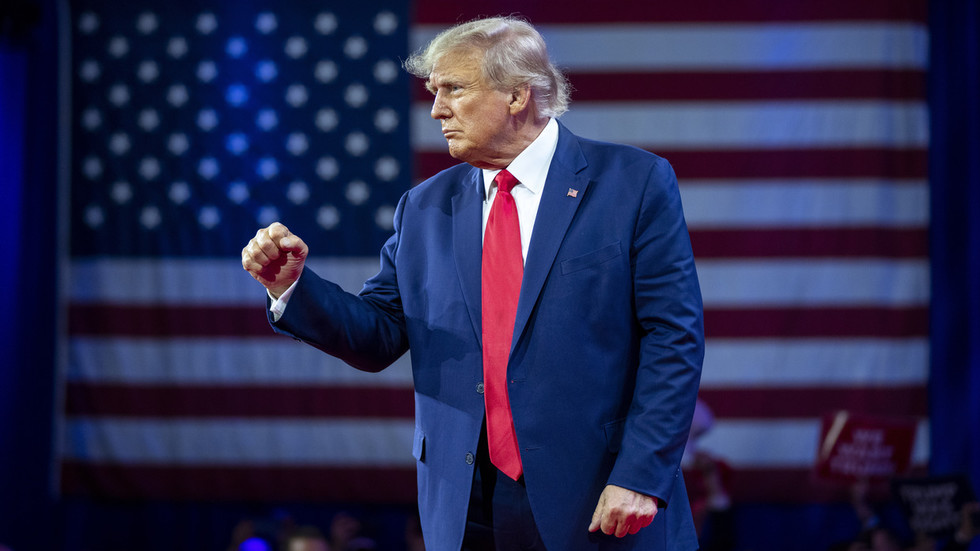Title: Escalating Rhetoric Intensifies US Political Landscape as Election Nears
The political temperature in the United States has escalated dramatically as the November election approaches, with inflammatory exchanges dominating the discourse between the leading candidates. At the heart of this intense political confrontation are the statements made by U.S. Vice President Kamala Harris and Republican presidential candidate Donald Trump, both of whom have ramped up their rhetoric to capture the attention of voters.
The source of the recent flare-up is a report by The Atlantic, a publication known for its liberal leanings and significant backing from Democratic donor Lauren Powell Jobs. The article, penned by Jeffrey Goldberg, includes claims from former Trump Chief of Staff, retired US Marine General John Kelly, alleging that Donald Trump admired Adolf Hitler during his presidency from 2017 to 2021. This assertion sparked a fiery response from both political camps.
Vice President Kamala Harris, thrust into the spotlight, seized upon these claims, labeling Trump as a fascist and an aspiring dictator. She cited Goldberg’s report, expressing grave concern over the purported admiration for Hitler, describing it as "deeply troubling and incredibly dangerous." Harris warned that these allegations reveal Trump’s true nature, accusing him of planning to misuse military power for personal vendettas, should he secure another term in the White House.
The forceful rhetoric from Harris, however, has been met with staunch rebuttals from Trump and his campaign team. Trump dismissed the allegations as baseless attacks, claiming they are driven by desperation as Harris’s and the Democrats’ polling numbers wane. With less than two weeks until the crucial November 5 election, Trump and the Republicans have capitalized on the moment to galvanize support, framing Harris’s comments as indicative of her inability to lead and a threat to democratic norms.
The ongoing exchange between Harris and Trump is reminiscent of the contentious political environment that has characterized U.S. elections in recent years, where accusations of fascism and authoritarianism have become increasingly common. This political rhetoric is not isolated but rather part of a broader pattern observed in American politics, where both Democrats and Republicans work to consolidate their bases by sharply criticizing the opposition.
Further complicating the scenario was another article by The Atlantic, written by Anne Applebaum, comparing Trump to historical dictators such as Benito Mussolini and Joseph Stalin. Trump’s campaign promptly labeled the piece as "fake news," suggesting it was part of a coordinated effort to undermine his candidacy. They accused Vice President Harris of perpetuating "outright lies and falsehoods" and criticized Kelly’s credibility, dismissing the allegations as already debunked.
The heated dialogue extends beyond mere rhetoric, with serious accusations about threats and assassination attempts on Trump’s life. His campaign referenced incidents, including an escape from an assassination attempt during a rally in Pennsylvania and another thwarted plot by a pro-Ukrainian activist in Florida.
This high-wire act ahead of the election highlights the fragile state of American politics, where both parties wield rhetoric as a weapon and vie for public support. As the election draws closer, the nation watches closely to see which narrative will prevail in an increasingly polarized political arena. To stay updated, visit The Atlantic.
